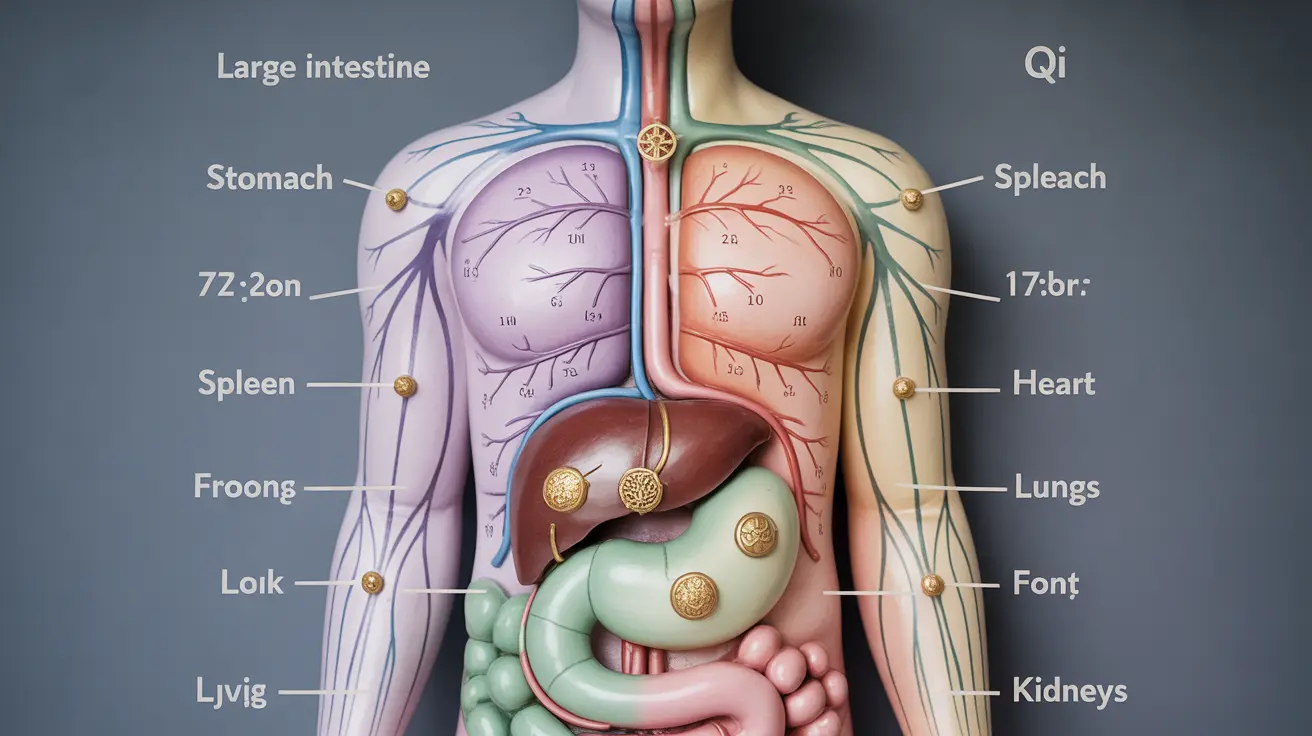Traditional Chinese Medicine (TCM) offers a fascinating perspective on how our body's energy flows throughout the day. The Chinese body clock, also known as the organ clock or meridian clock, maps out the peak functioning times of different organs and systems across a 24-hour cycle. Understanding this ancient wisdom can help you optimize your daily routines and enhance your overall well-being.
By aligning your activities with these natural rhythms, you may experience improved energy levels, better digestion, more restful sleep, and enhanced physical and emotional balance. Let's explore how this time-tested concept can transform your daily routine.
Understanding the Chinese Body Clock System
The Chinese body clock divides the 24-hour day into 12 two-hour periods, with each timeframe corresponding to peak energy in specific organs or body systems. This concept is deeply rooted in Traditional Chinese Medicine's understanding of qi (vital energy) circulation throughout the body.
According to TCM practitioners, when we align our activities with these natural energy flows, we support our body's innate healing and maintenance processes. Conversely, working against these rhythms may contribute to physical and emotional imbalances.
Key Time Periods and Their Corresponding Organs
5-7 AM: Large Intestine
This is considered the optimal time for elimination and cleansing. Many people naturally feel the urge to use the bathroom during this period, supporting the body's detoxification processes.
7-9 AM: Stomach
The stomach's energy peaks during these morning hours, making it the ideal time for breakfast. Traditional Chinese Medicine suggests eating your largest meal of the day during this window when digestive power is strongest.
11 AM-1 PM: Heart
Heart energy reaches its peak around midday. This is an excellent time for connecting with others, having meaningful conversations, or engaging in light exercise.
1-3 PM: Small Intestine
During this period, the body focuses on processing and absorbing nutrients from earlier meals. Some people may experience a natural dip in energy, making it suitable for lighter activities.
9-11 PM: Triple Warmer
This system regulates body temperature and immunity. It's an important time to begin winding down for sleep, allowing the body to initiate its natural healing processes.
Optimizing Your Daily Schedule
To make the most of the Chinese body clock, consider adjusting your daily activities to align with these natural energy flows:
- Wake up between 5-7 AM to support natural detoxification
- Eat your largest meal between 7-9 AM
- Schedule important tasks and meetings between 9-11 AM
- Take a short rest or light walk after lunch
- Begin preparing for sleep by 9 PM
Signs of Organ System Imbalances
According to TCM, recurring issues during specific time periods may indicate imbalances in the corresponding organ systems:
- Difficulty waking up (5-7 AM): Possible large intestine imbalance
- Poor appetite in the morning: Potential stomach energy disruption
- Afternoon fatigue (1-3 PM): May indicate small intestine challenges
- Sleep issues (11 PM-1 AM): Could suggest gallbladder system imbalance
Frequently Asked Questions
What is the Chinese body clock and how does it explain daily energy flow in the body?
The Chinese body clock is a Traditional Chinese Medicine concept that maps out how vital energy (qi) flows through different organ systems in two-hour intervals throughout the day. It explains why we may feel more energetic or sluggish at certain times and helps guide optimal timing for various activities.
Which times of day correspond to peak function for different organs according to the Chinese body clock?
Each organ has a two-hour window of peak function. Key examples include the large intestine (5-7 AM), stomach (7-9 AM), heart (11 AM-1 PM), liver (1-3 AM), and lungs (3-5 AM). During these times, the respective organs are believed to function at their highest capacity.
How can aligning my daily activities with the Chinese body clock improve my health and well-being?
Aligning activities with the body clock can optimize digestion, sleep quality, and energy levels. For example, eating your largest meal when stomach energy peaks (7-9 AM) and avoiding heavy meals when digestion is weaker can improve nutrient absorption and reduce digestive issues.
What emotional or physical symptoms might indicate an imbalance in a specific organ according to the Chinese body clock?
Recurring symptoms during specific time periods may signal organ imbalances. For instance, consistently waking between 1-3 AM might indicate liver issues, while afternoon fatigue could suggest small intestine challenges. Emotional symptoms like anxiety or irritability during certain hours may also correlate with specific organ systems.
How do Traditional Chinese Medicine practitioners use the Chinese body clock for diagnosis and treatment timing?
TCM practitioners consider the body clock when diagnosing conditions and timing treatments. They may schedule acupuncture or herbal treatments during an organ's peak hours for maximum effectiveness, and use the timing of symptoms to help identify underlying imbalances in specific organ systems.




